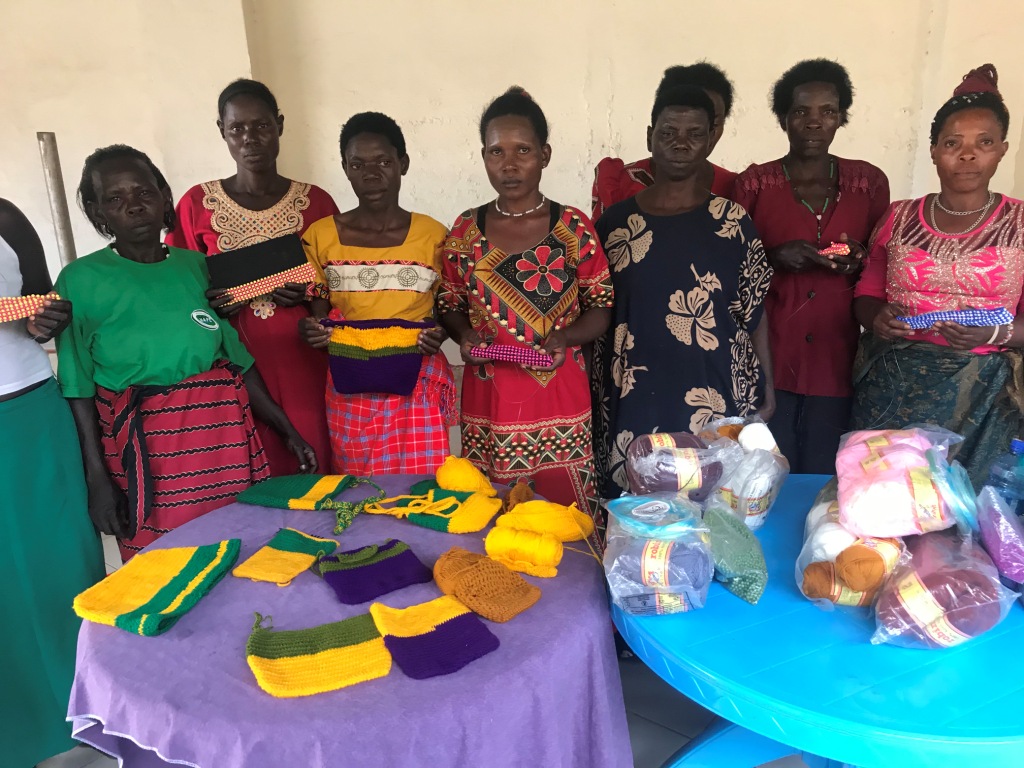Monday, January 3rd, 2022 | By

Angelic Mbisemenshe, a refugee living in Kyangwali refugee camp in Hoima district has often found herself frustrated with lack of suitable sustainable income generating activity for her livelihood.
For about 25 years she has lived in the camp, Mbisemenshe, a married woman with 4 children says she has largely depended on a monthly relief assistance from World Food Program (WFP) in form of food or cash to meet her basic food needs. However, she explains that the relief has always been not enough to cater for her family’s basic needs and this has always sparked conflicts on sharing the little relief received with her family.
She is among over 30 women from Kigyayo and RwamutongaInternally Displaced Camps and Kyangwali refugee camp in Kikuube district that have benefited from the ongoing entrepreneurship skills training organized by National Association of Professional Environmentalists (NAPE).
Mbisemeshe is optimistic that learning skills will help her get an income generating activity rather than entirely depending on relief assistance and hand- outs from organizations and government.
“I am currently learning crocheting and I will start making bags and dresses for sell. As a refugee, I don’t have land for cultivation in the camp and my education background is limited. This means my opportunities to get income are limited. And this has led to over dependency on my husband and relief assistance sparking conflicts,” says Mbisemenshe.
Joan Akiiza, the head of the project to reduce conflicts in the camps says the women are being trained in beading and crocheting livelihood options as part of the broader NAPE’s program to reduce gender-based violence, increase household income and promoting self-reliance to protect women and children.
Akiiza says people who flee their homes to the camps often lose their livelihoods and this in addition to lack of resources in the camp like land for cultivation lead to conflicts.
She says the program is targeting women because they are the ones mostly affected by gender based violence and access to income generating activities will enable them to become self-sufficient and be able to meet basic needs without necessarily depending on any one.
The program that started with a two-days training in crocheting and beading in December will continue until the women are competent enough to become trainers of other women in the camps according to Akiiza.
She also says that they will be given materials as startups.
Copyright ©2024 Community Green Radio . All Rights Reserved. Designed : Lwegatech